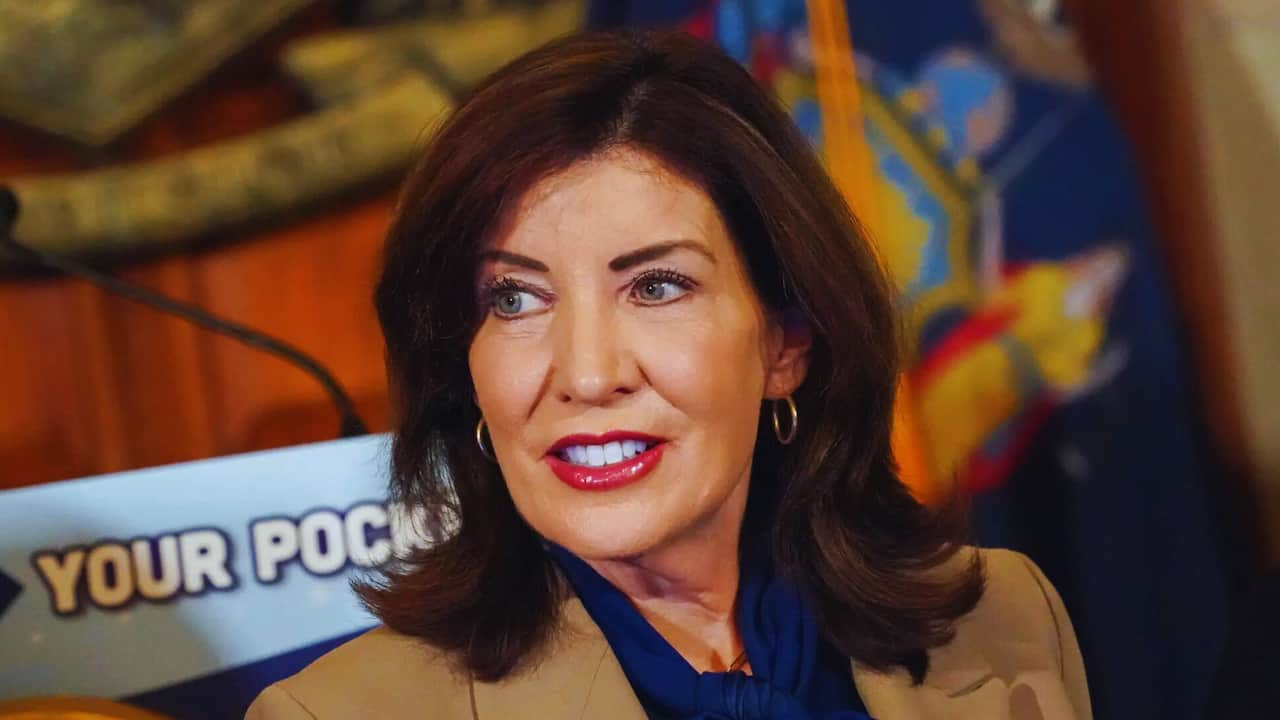Breaking: NYC Slashes Congestion Pricing to $9, Racing Against Trump’s January Deadline
In a dramatic shift for New York City’s transportation policy, Governor Kathy Hochul is set to announce a revamped congestion pricing plan with a significantly lower toll of $9, down from the originally proposed $15. This last-minute revival of the nation’s first congestion pricing program comes with mounting pressure and political complications.
Key Changes in the New Plan
- The base toll has been reduced by 40%, from $15 to $9 for most vehicles.
- Off-peak rates: $2.25 from 9 PM to 5 AM on weekdays
- Weekend rates: $2.25 from 9 PM to 9 AM
- Truck fees: $14.40 to $21.60 during peak hours
- Ride-share surcharges: 75 cents for taxis, $1.50 for Uber/Lyft
- Tunnel discounts: Major Manhattan tunnels offer up to $3 credit.
Race Against Time
The timing of this announcement is crucial, as state officials are rushing to implement the program before President-elect Donald Trump takes office in January. Trump has openly threatened to kill the program, making the timeline particularly tight for New York officials.
Financial impacts and goals
The program serves two main purposes:
- We are reducing traffic and improving the air quality in Manhattan.
- It generates approximately $1 billion per year for public transportation.
However, questions remain about whether the lower toll structure can achieve these goals. While the reduced rate might make the program more palatable to drivers, it could also mean more vehicles entering Manhattan, potentially offsetting both the environmental benefits and revenue targets.
Political Landscape
The announcement comes amid significant political pressure from multiple directions:
- Transit Advocates: Pushing for immediate implementation
- House Republicans: Five representatives have written to Trump opposing the “oppressive taxation regime.”
- Legal Challenges: Numerous lawsuits have been filed by both supporters and opponents
- Mayor Eric Adams: Expressing support for Hochul’s decision
Infrastructure is ready to go
The state has already invested over half a billion dollars in preparation.
- Camera systems
- Tolling software
- Consulting fees
- Technical infrastructure
Public Response
Betsy Plum, executive director of Riders Alliance, praised the decision: “In this new era, New York leaders must govern with more courage than ever before.”
Critics, including trucking associations and New Jersey Governor Philip D. Murphy, have filed legal challenges, highlighting the continued controversy surrounding the program.
Looking Ahead
While the reduced toll represents a compromise, supporters view it as a realistic starting point. Once the system establishes and public acceptance grows, the plan allows for potential future increases.
We expect the MTA board to review the proposal next week, and we plan to implement it before January. This accelerated timeline aims to secure the program’s future regardless of potential federal opposition under the incoming administration.
As New York City prepares for this historic change in urban transportation policy, the success of this revised plan could set a precedent for other major cities considering similar congestion-reduction measures.
